Exploring the Different Types of Circuit Breakers
Circuit breakers are indispensable safety mechanisms that disrupt electrical flow in a circuit to shield both the electrical grid and connected devices from overcurrents and short circuits. These vital elements are integral to electrical systems across residential, commercial, and industrial domains, safeguarding users and machinery alike.
At their core, circuit breakers are designed to halt the passage of excessive current in an electrical circuit, averting potential overheating, electrical fires, or damage to components. They automatically sever the circuit upon detecting an overcurrent or short circuit, thereby limiting the electrical current to prevent harm to the circuit and its components.
A diverse array of circuit breakers exists, tailored to specific uses and voltage requirements. They are generally divided into two categories: low voltage (LV) and high voltage (HV) circuit breakers. LV circuit breakers are prevalent in domestic and commercial environments, offering protection in settings like homes and offices. Conversely, HV circuit breakers are engineered for industrial use, adept at handling the elevated voltages present in manufacturing facilities or power networks.
Circuit breakers operate on straightforward yet advanced principles. Within these devices lies a mechanism that reacts to the circuit's current capacity. Should the current surpass this threshold, a bimetallic strip warms and bends, prompting an arm to disconnect the circuit. This arm separates the contacts, thus interrupting the electrical flow. Circuit breakers may be reset manually or automatically, depending on their design.
Diverse Circuit Breaker Varieties
There are several types of circuit breakers, each engineered for particular requirements. The following are some prevalent types:
-
Miniature Circuit Breaker (MCB): Common in residential and light commercial use, MCBs guard against overcurrent and short circuits. They are generally rated up to 63 amps and are straightforward to reset following a trip.
-
Molded Case Circuit Breaker (MCCB): MCCBs are suited for more rigorous commercial and industrial applications, capable of managing currents exceeding those of MCBs. They provide enhanced breaking capacity for larger circuits.
-
Residual Current Circuit Breaker (RCCB): RCCBs are designed to avert electric shocks by cutting off power when an imbalance in the electrical current is detected.
-
Earth Leakage Circuit Breaker (ELCB): ELCBs disconnect circuits upon detecting leakage currents, offering protection from electric shocks. They are often found in older systems and certain specialized contexts.
-
Overload Relays: Although not true circuit breakers, overload relays prevent equipment overheating by monitoring current and opening the circuit upon detecting an overload. They are typically employed in motor protection.
Selecting the Appropriate Circuit Breakers
Choosing the correct circuit breaker is vital for the safety and efficiency of any electrical setup. When sourcing from Alibaba.com for business purposes, it is important to evaluate factors like voltage level, current capacity, environmental conditions, and specific application needs.
Begin by determining your system's voltage rating, which will dictate the need for a low-voltage (LV), medium-voltage (MV), high-voltage (HV), or ultra-high-voltage (UHV) breaker. The chosen voltage level must align with your system to avert equipment malfunctions or fires.
Next, assess the circuit breaker's current capacity, typically influenced by the system's main circuit rating voltage requirement. The selected breaker should be able to handle your system's peak current without premature tripping or operational complications.
Then, consider the environmental conditions of the installation site. For outdoor use or areas with high humidity or moisture, a sturdier, possibly waterproof, breaker design is necessary.
Finally, reflect on the specific application requirements. Different breaker types offer various advantages, such as space-saving features for commercial spaces or advanced protection for particular uses like food shops or restaurants.
Discovering Circuit Breakers on Alibaba.com
Alibaba.com is a premier global marketplace that connects businesses with a vast array of suppliers offering a wide selection of circuit breakers for all applications. Since its establishment in 1999, Alibaba.com has led the way in B2B transactions across more than 190 countries, providing a platform for businesses to access a comprehensive range of products essential for their operations. With a broad assortment from suppliers worldwide, Alibaba.com simplifies the procurement of quality circuit protection devices to meet specific business needs.
The platform's intuitive interface allows for easy searching with advanced filters to help buyers sort through various circuit breaker options based on protection level, industry application, number of poles, material composition, and more. This precise search method ensures businesses can find products that meet their technical requirements effortlessly.
Additionally, Alibaba.com offers Trade Assurance, a service that bolsters buyer confidence by protecting payments until the order's successful fulfillment is confirmed. This commitment to secure transactions underscores Alibaba's dedication to providing reliable and honest service to businesses. Whether in need of miniature circuit breakers for electronic devices or robust outdoor high-voltage breakers for utility projects, Alibaba.com offers an accessible platform to explore offerings from reputable suppliers globally, without geographic constraints.
Frequently Asked Questions on Circuit Breakers
What types of circuit breakers are suitable for industrial applications?
Industrial circuit breakers, designed for high-voltage and high-current tasks, include varieties such as molded case circuit breakers (MCCBs), miniature circuit breakers (MCBs), and air circuit breakers (ACBs), each tailored to meet specific industrial requirements.
How should I select the appropriate circuit breaker material for my business?
Account for your business's environmental demands and conditions. Copper circuit breakers are optimal for high electrical conductivity needs, like in power distribution, while ABS or plastic breakers may be adequate for less intensive environments.
Are circuit breakers compatible with both AC and DC applications?
Certain circuit breakers are specifically crafted for alternating current (AC) or direct current (DC) systems. It's crucial to choose a breaker that matches the system's current and voltage specifications.
What does the 'number of poles' mean in circuit breakers?
The 'number of poles' indicates the configuration of the circuit breaker, showing the number of conductive paths within the device. It ranges from 1 to 4, denoting the available connection options.
How does the protection level influence my circuit breaker choice?
The protection level signifies the degree and type of resistance a circuit breaker offers. Matching the protection level to your application's risks is essential for ensuring the electrical system's safety and durability.
Do any circuit breakers feature remote operation?
Yes, certain circuit breakers come with remote operation features, particularly useful in industrial settings for swift maintenance or repair access without direct manual interaction.
What should I consider in a circuit breaker for a hotel or hospitality environment?
In hospitality settings, opt for circuit breakers that provide electrical safety and can manage power fluctuations. Considerations such as overcurrent protection and operational simplicity are also important due to the variable electrical loads from numerous guests.
How do I choose a circuit breaker based on the industry's local service location?
Selecting a circuit breaker that adheres to the specific regulations and environmental conditions of the local service location is crucial. Ensure the voltage rating and breaking capacity comply with the regional standards.
Is it possible to obtain customized circuit breakers for specialized applications?
Suppliers on Alibaba.com may offer custom solutions designed to meet unique operational needs, such as particular voltage ratings or special protective features.
What do 'on-off' and 'function' signify in the context of circuit breakers?
'On-off' indicates the state of a circuit breaker, whether it is open (off) or closed (on). 'Function' denotes whether the breaker is active (on) or inactive (off), akin to a light switch's status.
What is referred to by 'material' in circuit breakers?
The 'material' specification pertains to the construction materials of the circuit breaker, which may include copper, ABS, or steel components. The material choice impacts the breaker's durability and performance.

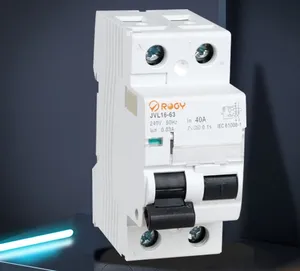

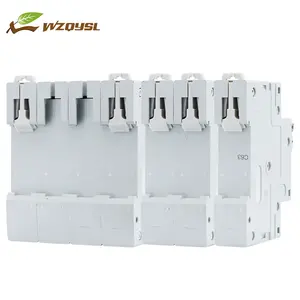

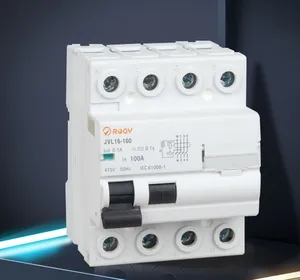

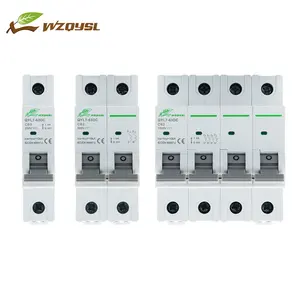



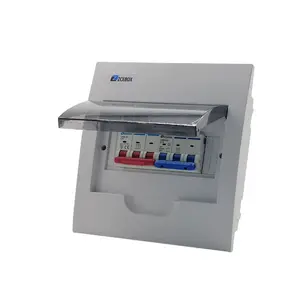






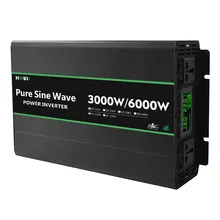

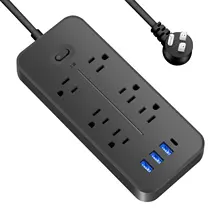
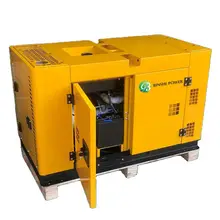
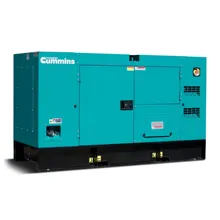





















 浙公网安备 33010002000092号
浙公网安备 33010002000092号 浙B2-20120091-4
浙B2-20120091-4